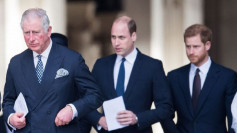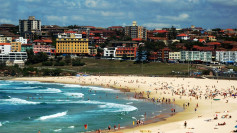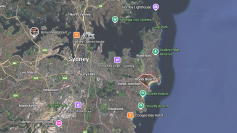North Korea's involvement in the war in Ukraine has escalated, with reports confirming that its troops are sustaining significant casualties while fighting alongside Russian forces in the Kursk region. U.S. and Ukrainian officials estimate that approximately 10,000 to 12,000 North Korean soldiers have been deployed to bolster Russia's military, with their focus on supporting Moscow's attempts to regain territory lost to Ukraine during a surprise offensive earlier this year.
Pentagon Press Secretary Major General Pat Ryder stated, "North Korean soldiers have engaged in combat in Kursk alongside Russian forces. We also have indications they have suffered casualties, both killed and wounded." While the exact number of fatalities remains unclear, a senior U.S. official reported that "several hundred" North Korean troops have been killed or wounded. Ukrainian military intelligence similarly noted that at least 30 North Korean soldiers were killed or injured during recent combat operations.
This marks a significant development in the conflict, highlighting the deepening relationship between Moscow and Pyongyang. In return for military personnel and munitions, Russia has been providing North Korea with oil and other resources. The move underscores the challenges both nations face as they seek to offset growing military losses and international isolation.
The North Korean troops in Kursk have primarily been deployed in infantry roles, integrated into Russian units. However, their lack of combat experience and the language barrier have reportedly led to operational issues, including a friendly-fire incident involving Chechen soldiers aligned with Russia. Edward Howell, a Korea Foundation Fellow at Chatham House, described the North Korean forces as "Putin's cannon fodder," adding, "Their involvement in the war has done little to change Putin's overall strategy."
Drone footage purportedly showing dead North Korean soldiers lined up in the snow has circulated on social media, adding to the grim reality of their battlefield presence. Reports from Ukraine's Security Service include intercepted communications suggesting that hundreds of wounded North Korean soldiers have been transported to Russian hospitals near Moscow. In one intercepted call, a nurse questioned whether the North Koreans were elite troops, expressing astonishment at the scale of casualties.
The deployment follows months of closer ties between Russia and North Korea, with Pyongyang supplying munitions to Moscow earlier in the conflict. Ukrainian President Volodymyr Zelensky has condemned North Korea's involvement, stating, There was "not a single reason for North Koreans to die in this war." He also emphasized the dire human toll on both sides, noting that tens of thousands of Ukrainian and Russian soldiers have already perished in the ongoing conflict.
Experts warn that the participation of North Korean troops could signal a trial phase for broader involvement. According to Newsweek, Konstantin Sonin, a professor at the University of Chicago, commented, "It's perhaps at an experimental stage, so if it works, maybe they will try to use 100,000 North Korean troops, which would make a difference." Yuriy Boyechko, founder of the charity Hope for Ukraine, added, "Let's say only 1,000 of them survives-they will come back to North Korea and train the rest of the army on this new type of warfare."
As the war grinds on, Russia's attempts to bolster its ranks come at a time of mounting pressure from the West. The U.S. and European Union recently imposed additional sanctions targeting individuals and entities facilitating North Korea's military assistance to Russia. The White House's National Security Council spokesperson, John Kirby, called the deployment a "dramatic move" that could exacerbate tensions in the region.
Looking ahead, there is speculation that North Korea may send additional troops to support Russia's operations, particularly as Moscow seeks to regain strategic advantages ahead of anticipated negotiations in 2025. The timing coincides with President-elect Donald Trump's upcoming inauguration, which some believe may influence the trajectory of the conflict. Trump has pledged to bring an end to the war, though he has yet to outline a concrete plan.
Meanwhile, analysts are watching closely to see how Kim Jong Un navigates the growing human cost of North Korea's involvement. Edward Howell posed the critical question: "What will Kim ask in return from Russia, now that North Korean soldiers are not just active participants in the war, but casualties from it?"






